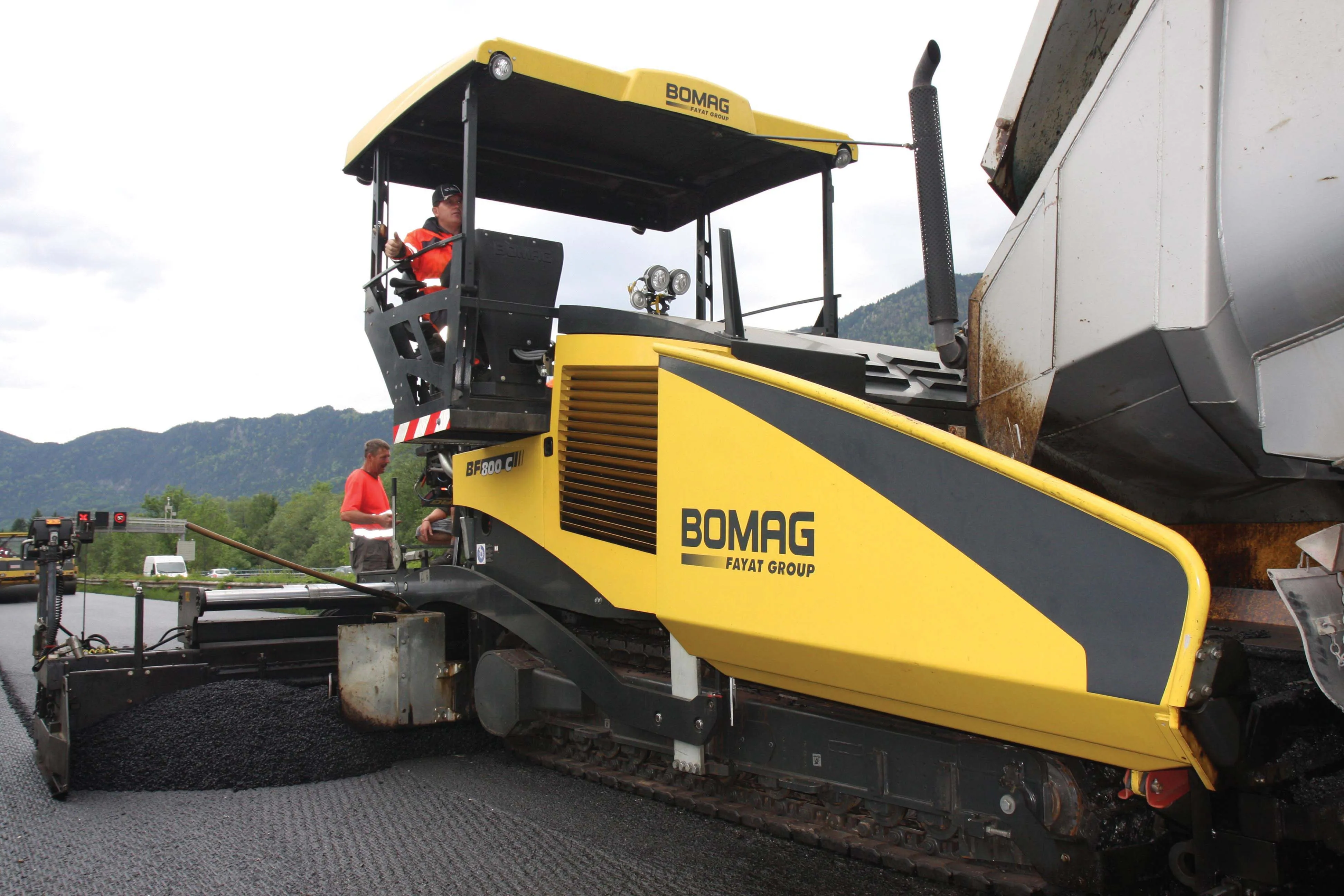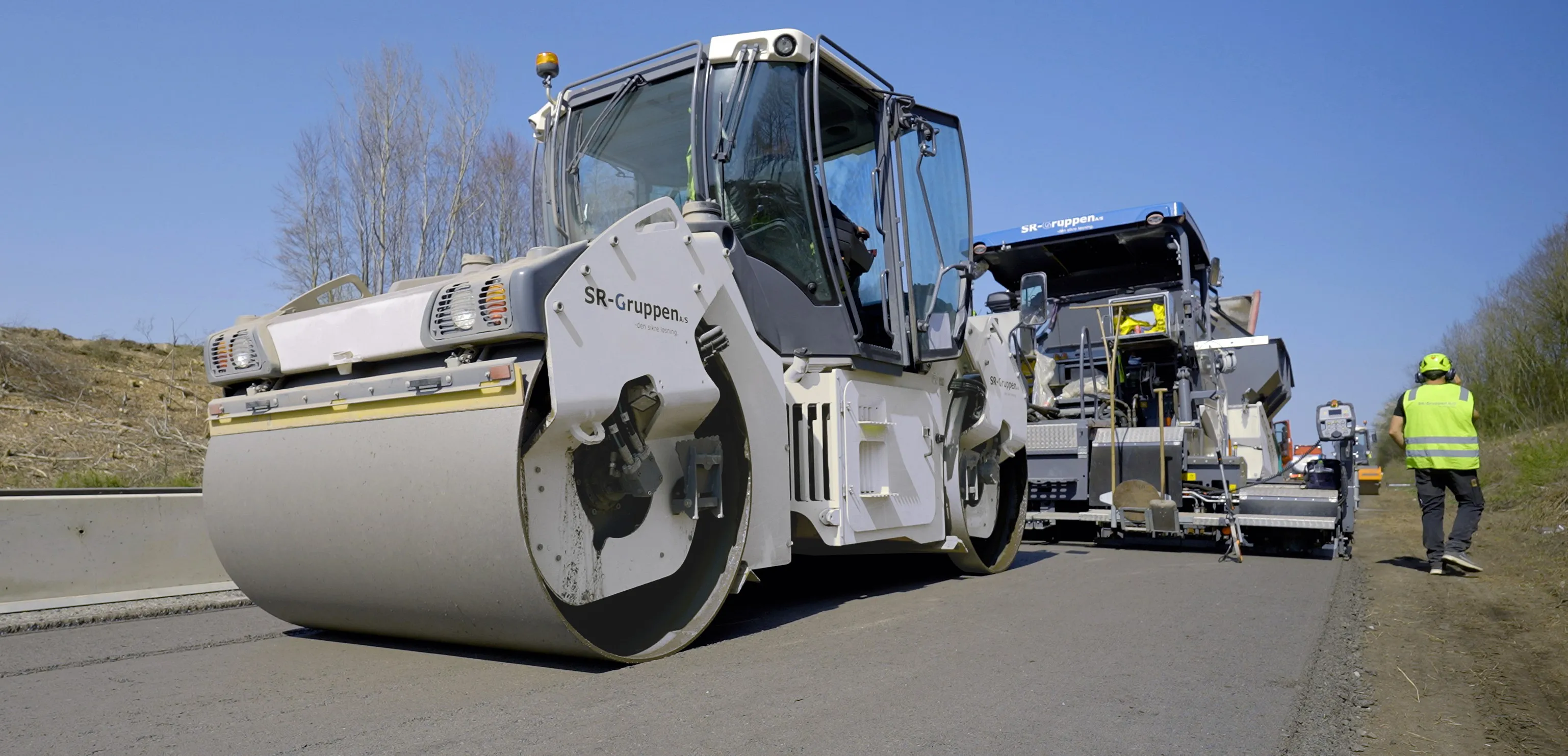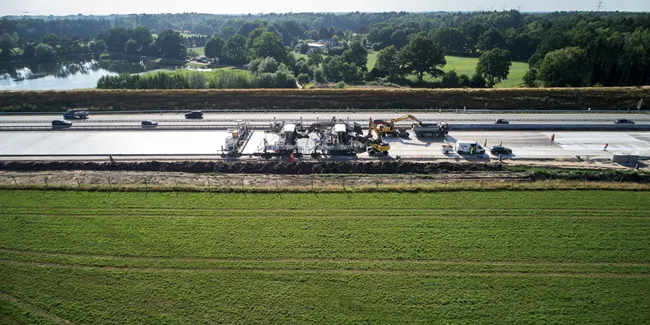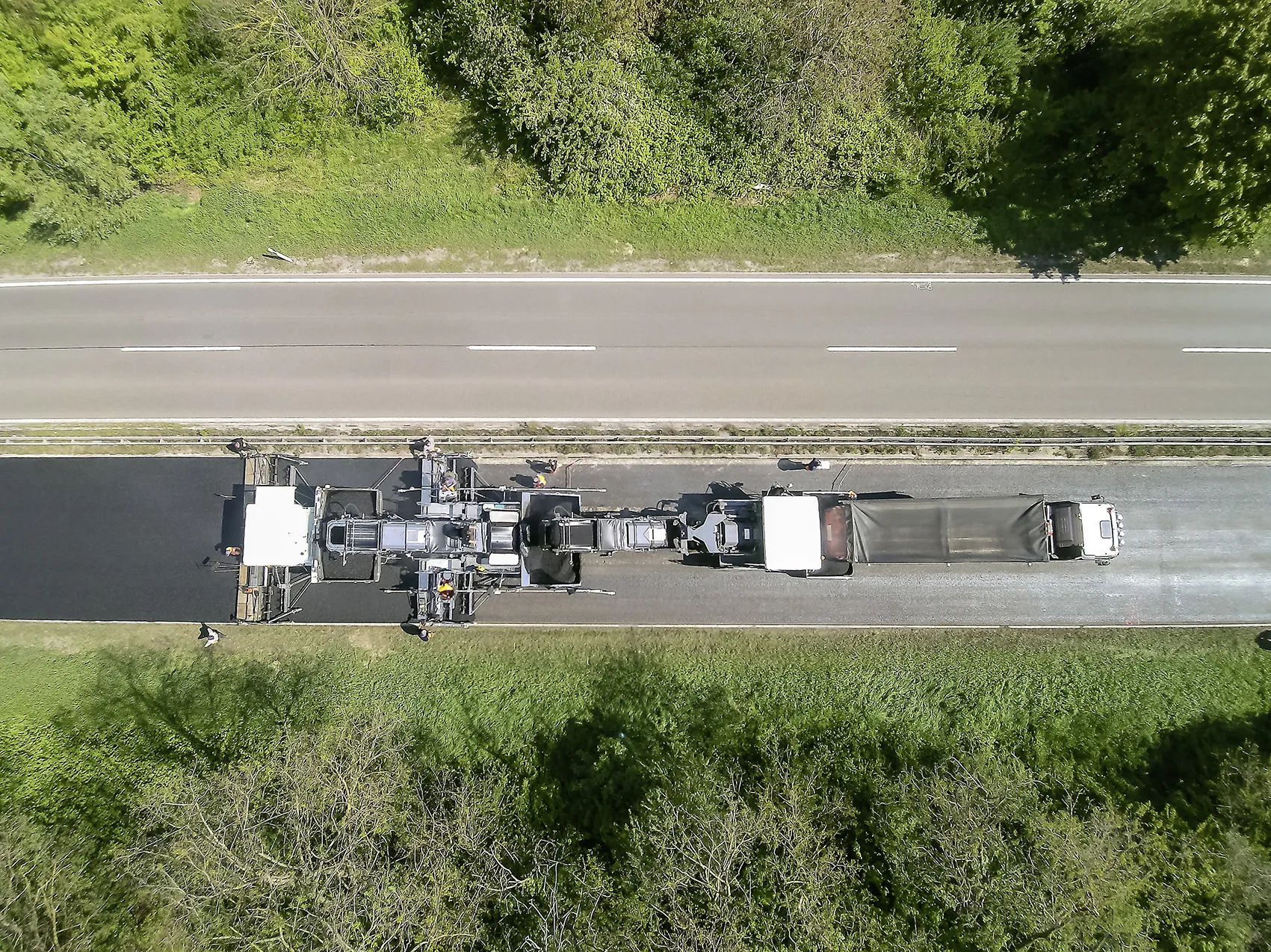Work to improve a section of the busy A12 Inntal highway in Austrian Tyrol, Austria, has been carried out by contractor Strabag. The A12 is one of Austria’s busiest highways and carries heavy traffic volumes, particularly in summer when it is an important holiday route through to Southern Europe. The heavy traffic volumes mean that the road has to withstand high stresses. The Brixlegg branch of Strabag carried out a surface renovation contract on the 5.5km stretch between Kundl and Radfield and focussed on
April 1, 2014
Read time: 2 mins

Work to improve a section of the busy A12 Inntal highway in Austrian Tyrol, Austria, has been carried out by contractor 945 Strabag. The A12 is one of Austria’s busiest highways and carries heavy traffic volumes, particularly in summer when it is an important holiday route through to Southern Europe. The heavy traffic volumes mean that the road has to withstand high stresses.
The Brixlegg branch of Strabag carried out a surface renovation contract on the 5.5km stretch between Kundl and Radfield and focussed on high quality paving while meeting a strict schedule Strabag had to carry out the work in a 10-week slot, working 12 hours/day and six days/week, to complete the project on time.
The firm opted to use a172 Bomag BF800C paver, having used it successfully on another stretch of the same road. “We had already used a BF800 on a 3.5km project on the A12 in 2012,” says paving manager Michael Hanser. “We were pleased with the paver and the paving result. So it was clear to me that we were going to work with a BF800 again.”
The BF800C, with the S500 screed and 6.5m extensions, laid around 1,500tonnes of chip mastic asphalt (SMA 8 S)/day, and a Total of 13,200tonnes for the whole project. Strabag also used Bomag rollers to compact the asphalt and the surface finish came well within the tight specifications for the work.
Driver studies show that drivers judge a road on its evenness, according to site manager Christoph Unterrainer. He said, “On a route used as much as this, driving comfort and load bearing capacity are very important to all road users. They require precise compaction and evenness. After completion of this project, we found that both were completely to specification.”
The Brixlegg branch of Strabag carried out a surface renovation contract on the 5.5km stretch between Kundl and Radfield and focussed on high quality paving while meeting a strict schedule Strabag had to carry out the work in a 10-week slot, working 12 hours/day and six days/week, to complete the project on time.
The firm opted to use a
The BF800C, with the S500 screed and 6.5m extensions, laid around 1,500tonnes of chip mastic asphalt (SMA 8 S)/day, and a Total of 13,200tonnes for the whole project. Strabag also used Bomag rollers to compact the asphalt and the surface finish came well within the tight specifications for the work.
Driver studies show that drivers judge a road on its evenness, according to site manager Christoph Unterrainer. He said, “On a route used as much as this, driving comfort and load bearing capacity are very important to all road users. They require precise compaction and evenness. After completion of this project, we found that both were completely to specification.”









